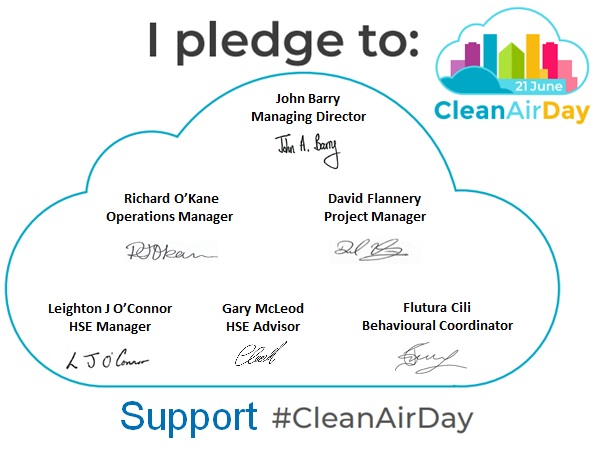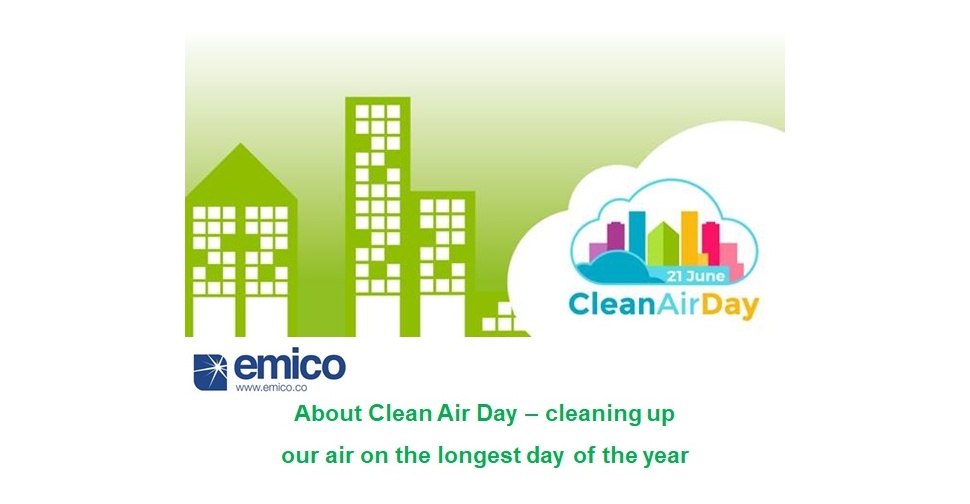Clean Air Day at home.
Will enable people to act on air pollution.
By pledging to:
- Leave my car at home on June 21st
- Walk my children to school on June 21st
- Switch off my engine whenever I can on June 21st
- Share tips to cut air pollution with others on June 21st
Clean Air Day will enable people to act on air pollution, making UK cities cleaner, healthier and greener for us all - especially children. Children are especially vulnerable to the effects of air pollution, and action to protect them will be a particular focus on the day. If you act today, we’ll all benefit today.

Clean Air Day at work.
Will enable people to act on air pollution.
By pledging to:
- Report all known fume and dust exposure that has the potential to be hazardous to your health or the health of others.
- Ensure when working with equipment and tools with extraction, the extraction is working efficiently and effectively.
- Challenge those who are polluting the air to the levels it has the potential to be hazardous to health.
- Accept being challenged and proactively react to the issue.
- Always react to warnings from air quality monitoring equipment.
Diesel fumes and your health.
Breathing in diesel fumes can affect your health, and exposure to the fumes can cause irritation of your eyes or respiratory tract. These effects are generally short term and should disappear when you are away from the source of exposure.
What is “Construction dust”
This is a general term used to describe different dusts that you may find on a construction site. There are three main types:
- Silica dust – created when working on silica containing materials like concrete, mortar and sandstone (also known as respirable crystalline silica or RCS).
- Wood dust – created when working on softwood, hardwood and wood-based products like MDF and plywood.
- Lower toxicity dusts – created when working on materials containing very little or no silica. The most common include gypsum (eg in plasterboard), limestone, marble and dolomite.



